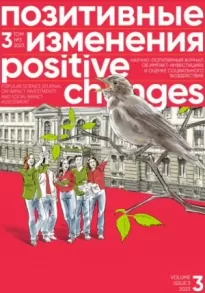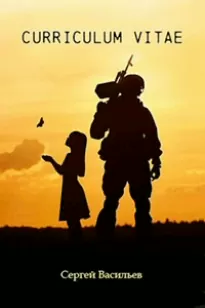Позитивные изменения. Том 3, № 3 (2023). Positive changes. Volume 3, Issue 3 (2023)

- Автор: Редакция журнала «Позитивные изменения»
- Жанр: Научная литература / Газеты и журналы
- Дата выхода: 2023
Читать книгу "Позитивные изменения. Том 3, № 3 (2023). Positive changes. Volume 3, Issue 3 (2023)"
SO, WHAT SHOULD ONE BRACE FOR?
Regardless of the chosen modus operandi for university collaborations, it is paramount to be ready for progressively nurturing ties with the educational institution of choice, Olga Postnikova believes. Initiating the partnership could entail contributing to a scholarly paper or a compilation, followed by offering unpaid internships for students, and subsequently transitioning to paid opportunities.
“Regardless of the engagement structure, it boils down to two scenarios: either you communicate your narrative well and elucidate the university’s potential gains from the alliance, or the university should have compelling reasons to consider you an ally. Indeed, we’re currently integrated into the academic curricula of Ryazan State Medical University, Ryazan State University, and the Ryazan branch of the Moscow Witte University, deriving certain benefits. However, this achievement didn’t materialize overnight. It’s imperative to validate your trustworthiness to the academic institutions, demonstrate your prowess and service quality, and that can be achieved solely through consistently cultivating one’s reputation.”
Anna Nikitina, Director of the Center for Neurocorrection of Children and Adolescents, underscores the importance of diligently selecting a university. She emphasizes the need for a personal meeting with the institution’s director or deputy to make sure you have shared values. “When there’s an alignment in perspectives, any potential challenges during collaboration can be tackled, since our overarching objective remains the same,” Anna points out. “Additionally, one should always anticipate potential risks beforehand and offer complete clarity on financial matters. For instance, our initial agreement with the university stipulated a fixed per-student fee. However, with fluctuating student numbers, this arrangement wasn’t always financially viable. We later transitioned to an hourly rate during the course. Naturally, it’s advisable to settle such details from the get-go.”
On another note, organizations like Prostoe Delo and You Social highlight the bureaucratic intricacies of dealing with vast entities like universities. “This can be seen as a mentality shift between academic and entrepreneurial realms. Social entrepreneurs, by nature, are flexible, active, responsive, and adaptive. We’ve been fortunate in our interactions: our academic partners have been very easy to approach. But yes, contract negotiations can be time-consuming — an inherent aspect of contractual relationships,” Anastasia Lyamtseva of You Social explains.
Anastasia Varlygina also feels the lack of an entrepreneurial approach in how universities and institutes interact with her organization: “Academic and entrepreneurial thinking do differ strikingly, starting from the way universities frame problems or draft directives. Their approach is very fundamental, while in the entrepreneurial world we adopt an iterative one. This is just one of the less-obvious differences. Within the academic system, people tend to focus on meticulous procedural formalities, often allowing them to overshadow the primary objective. A social entrepreneur might be the key to ensuring that the process doesn’t lose sight of tangible results amidst abstract formalities.”
Navigating the intricate hierarchy of educational establishments can be daunting. However, social entrepreneurs suggest building bridges with universities through grassroots initiatives, such as student activists, student-led movements, and unions.





